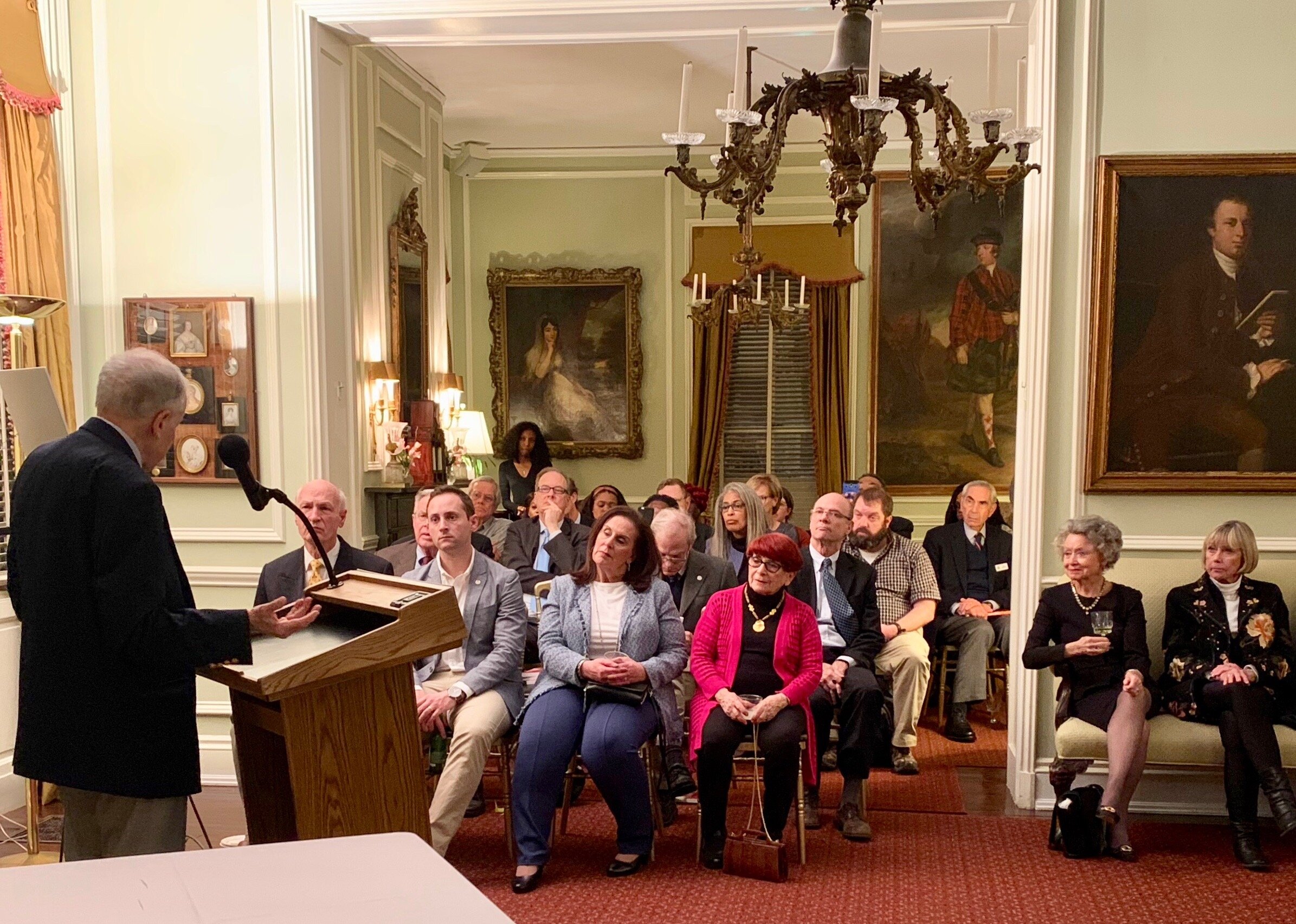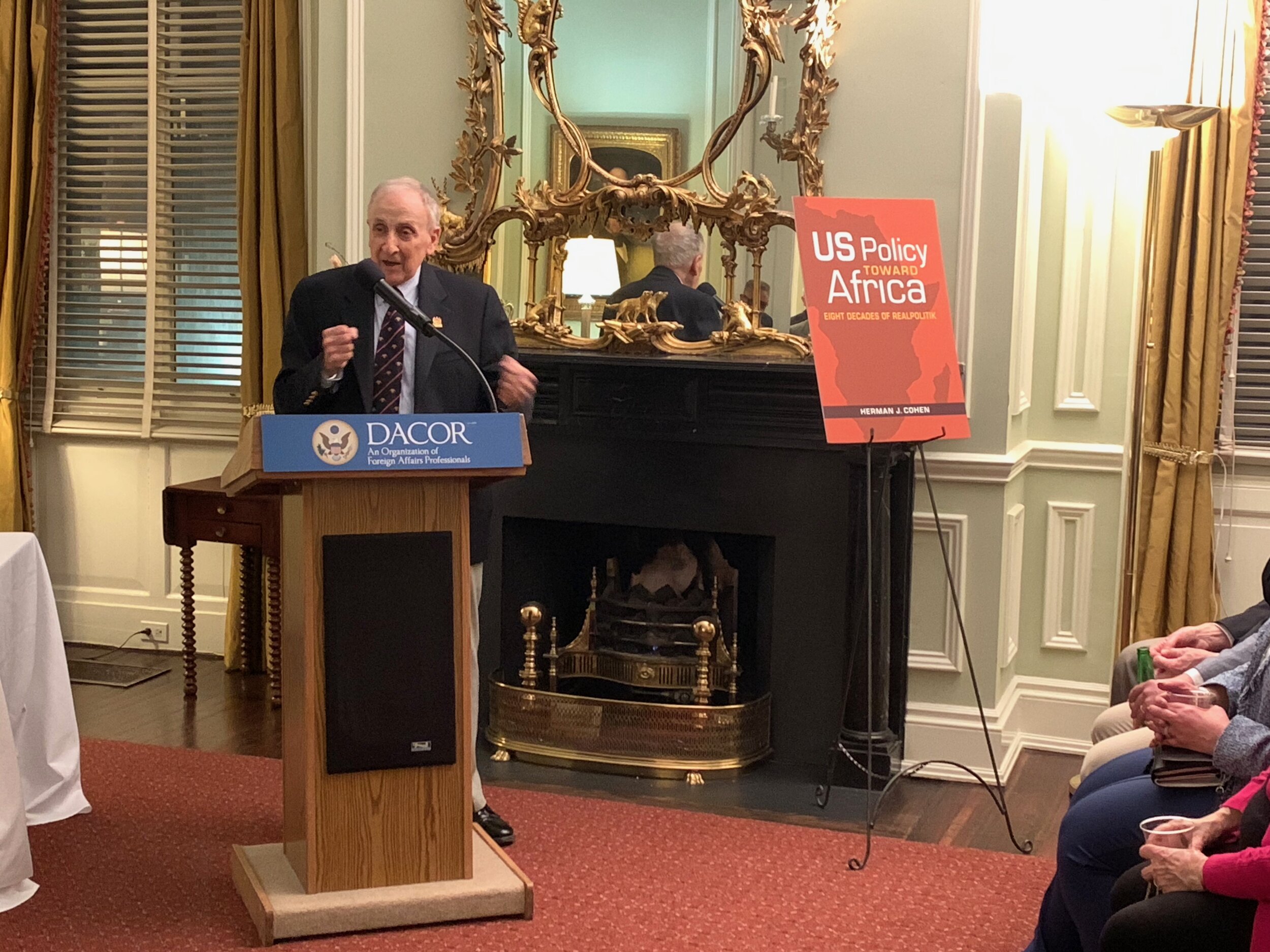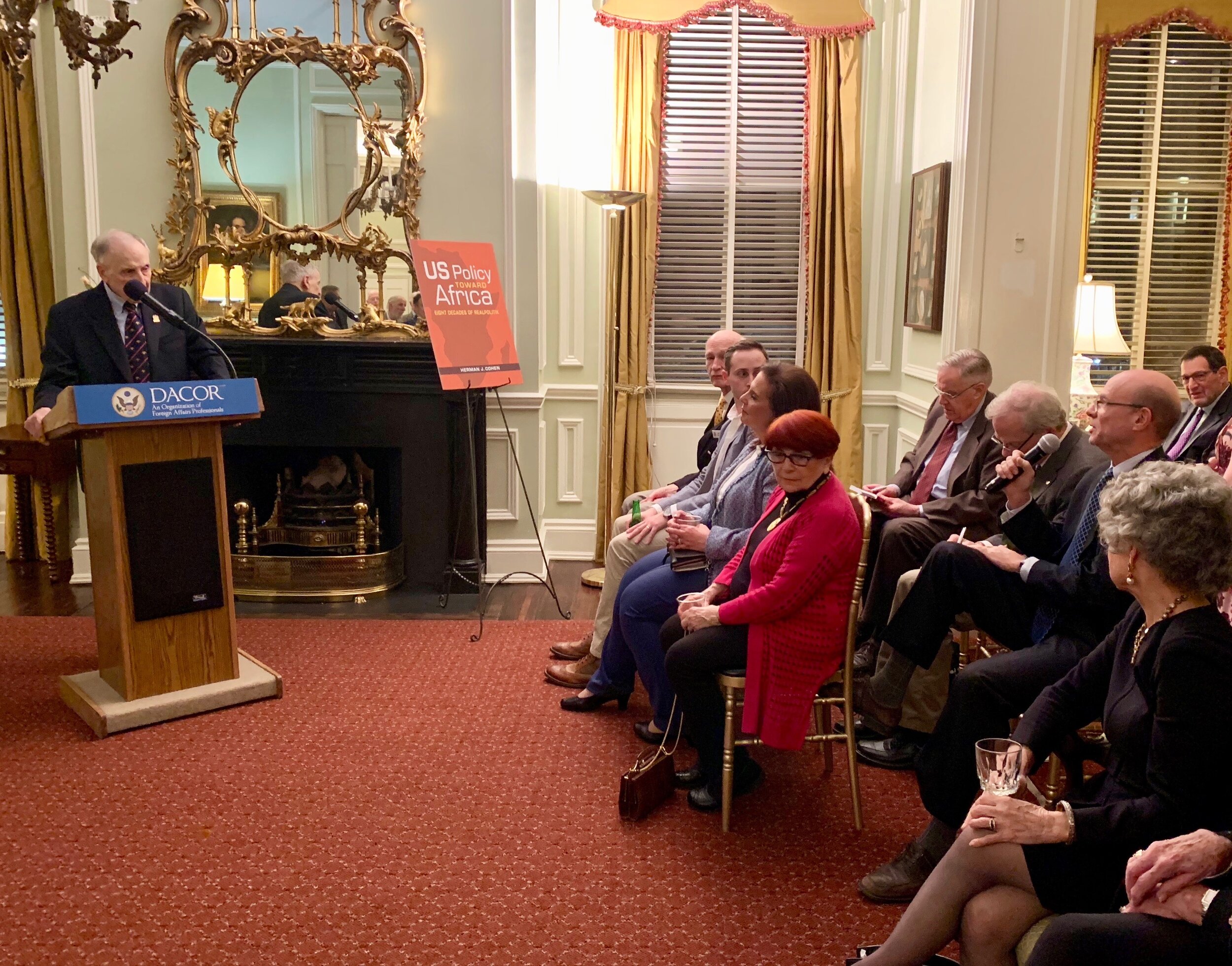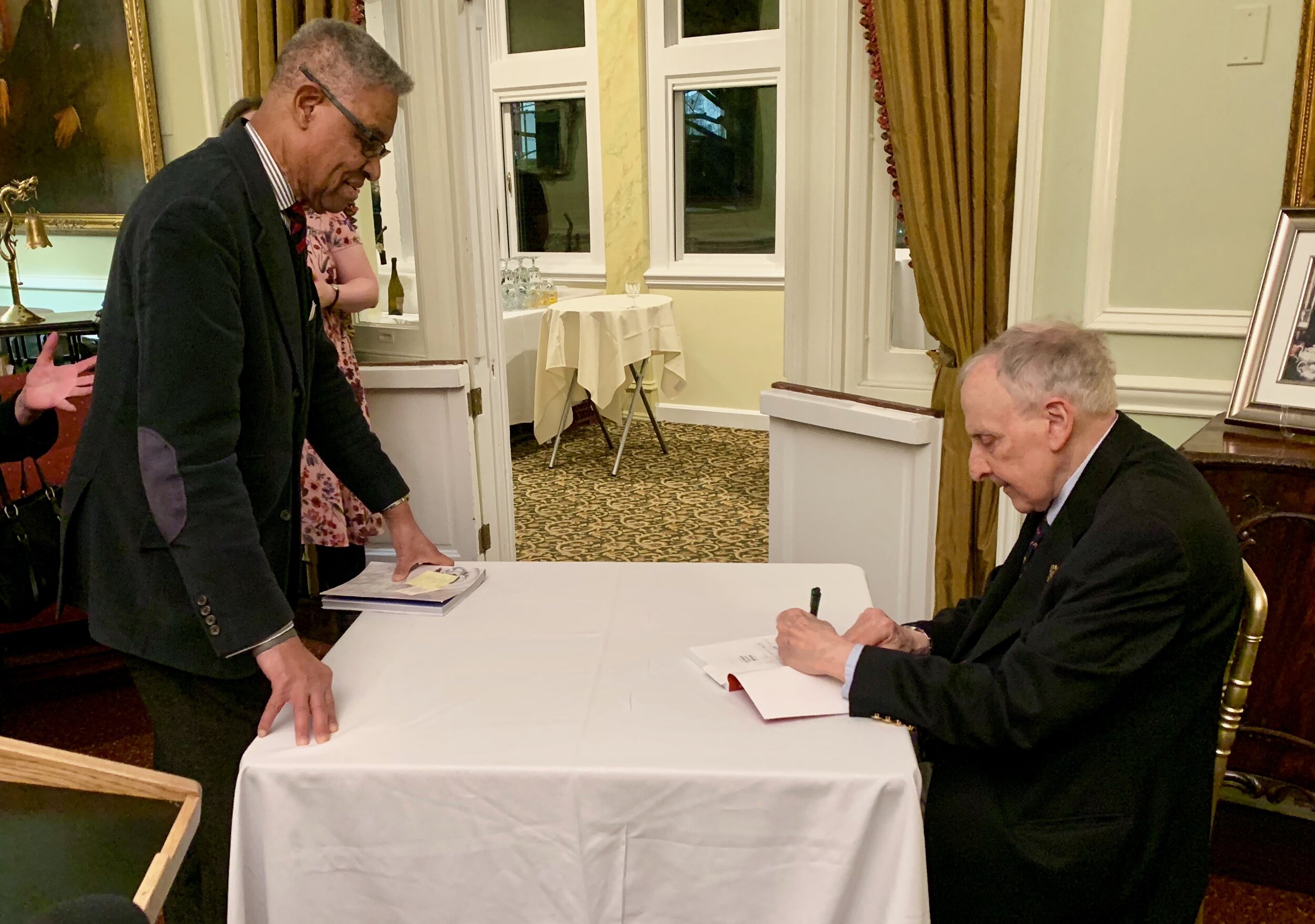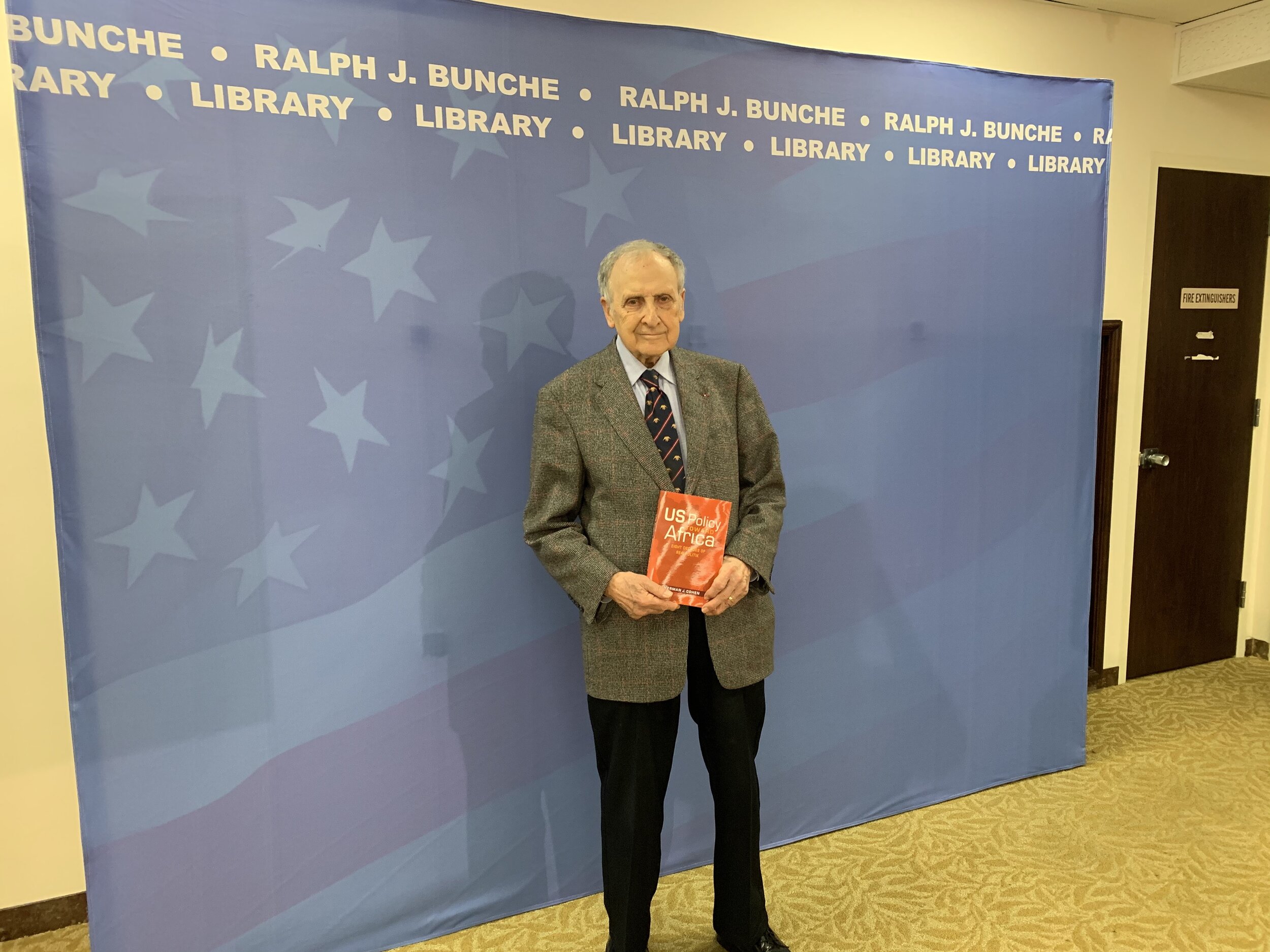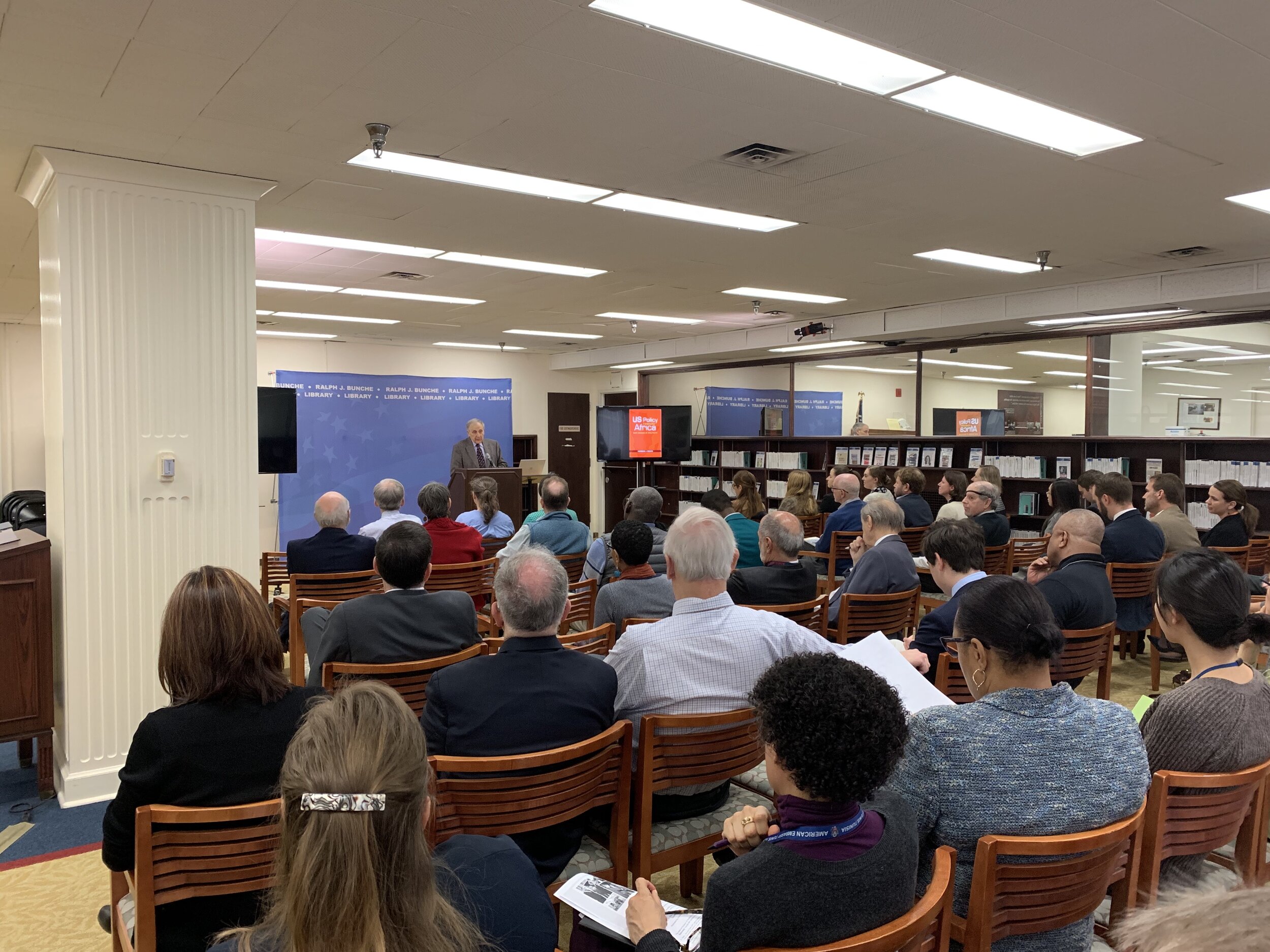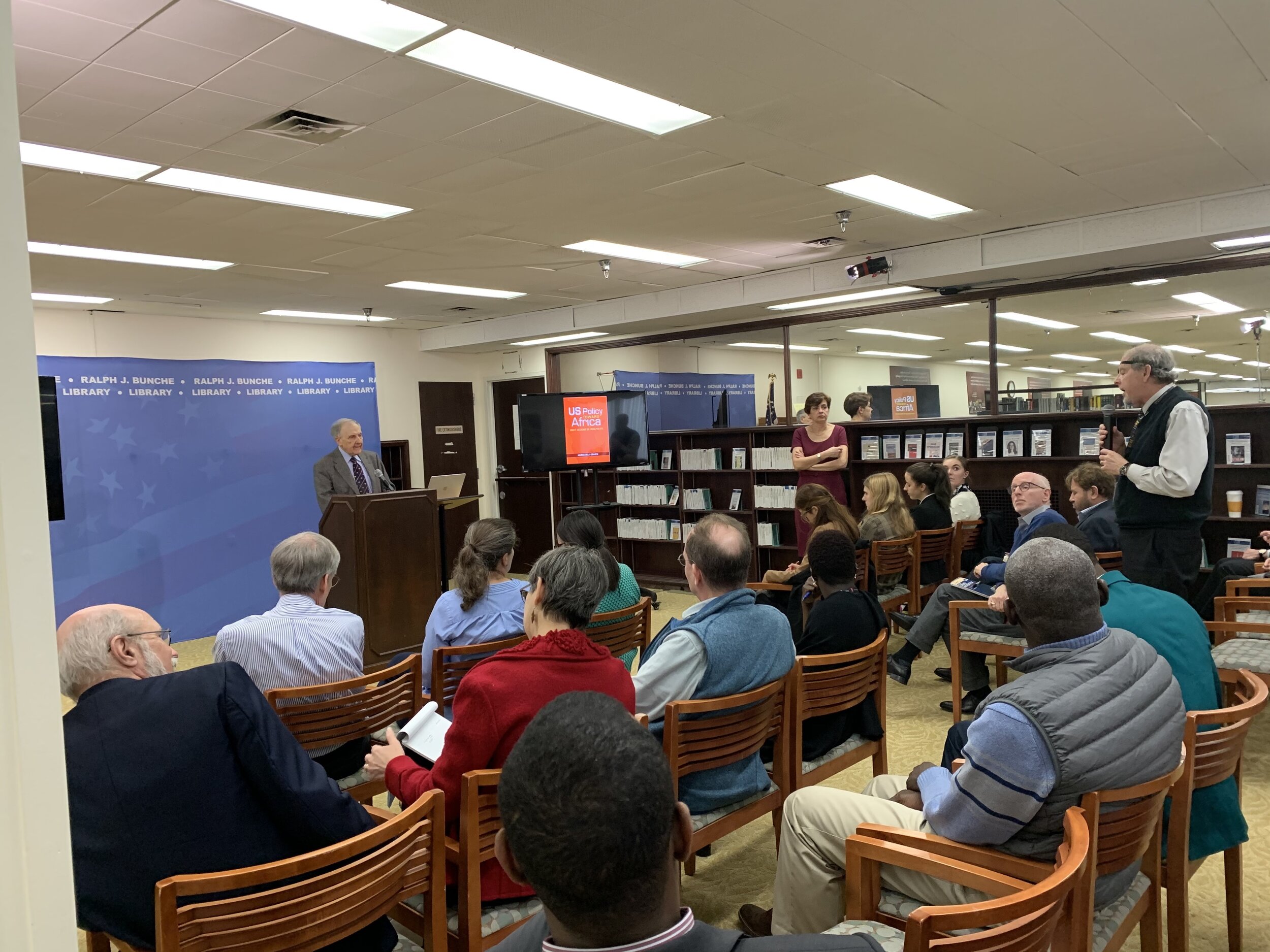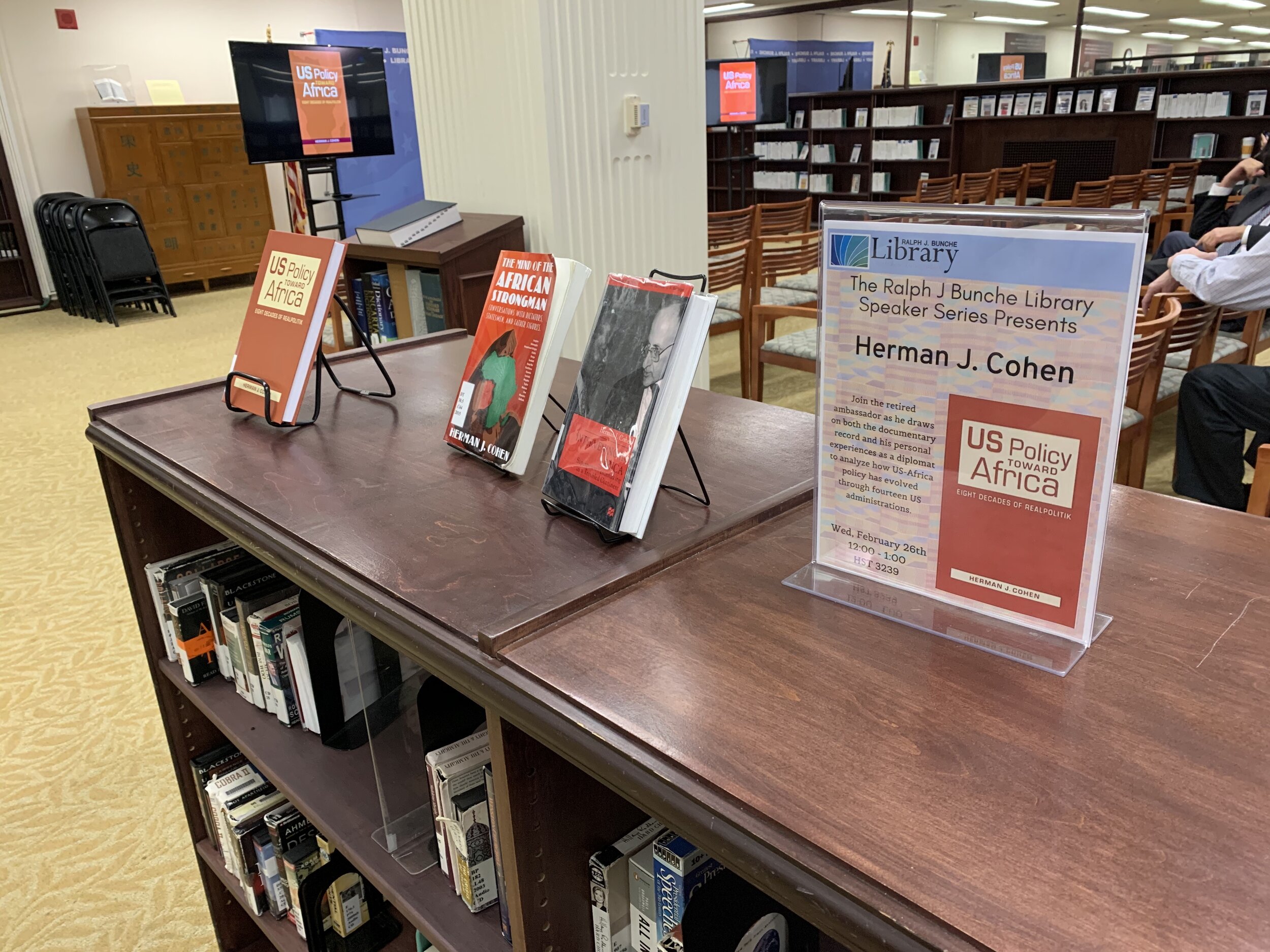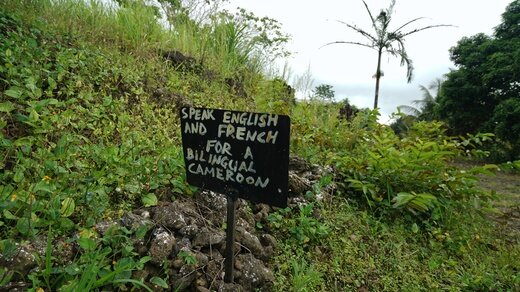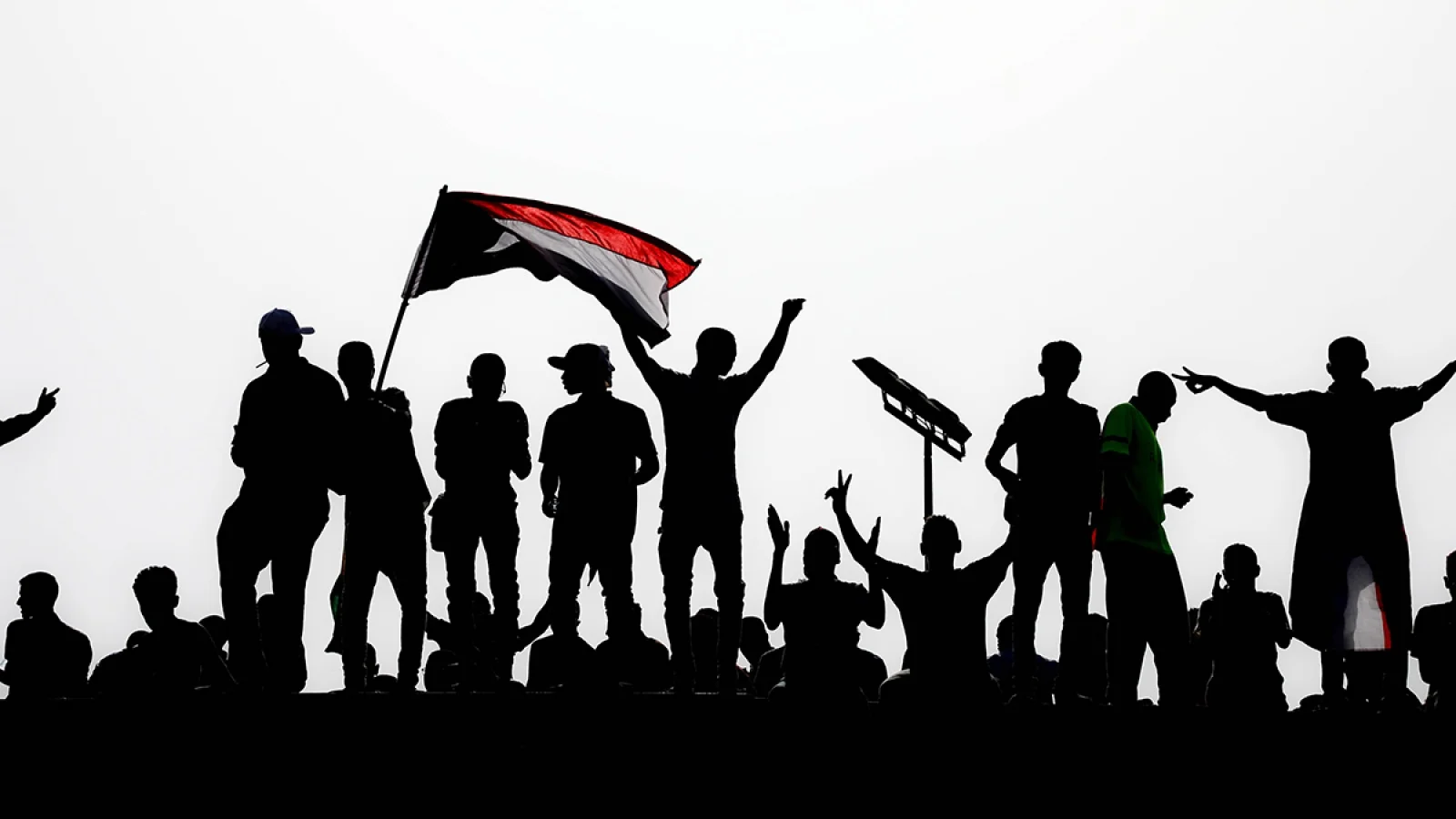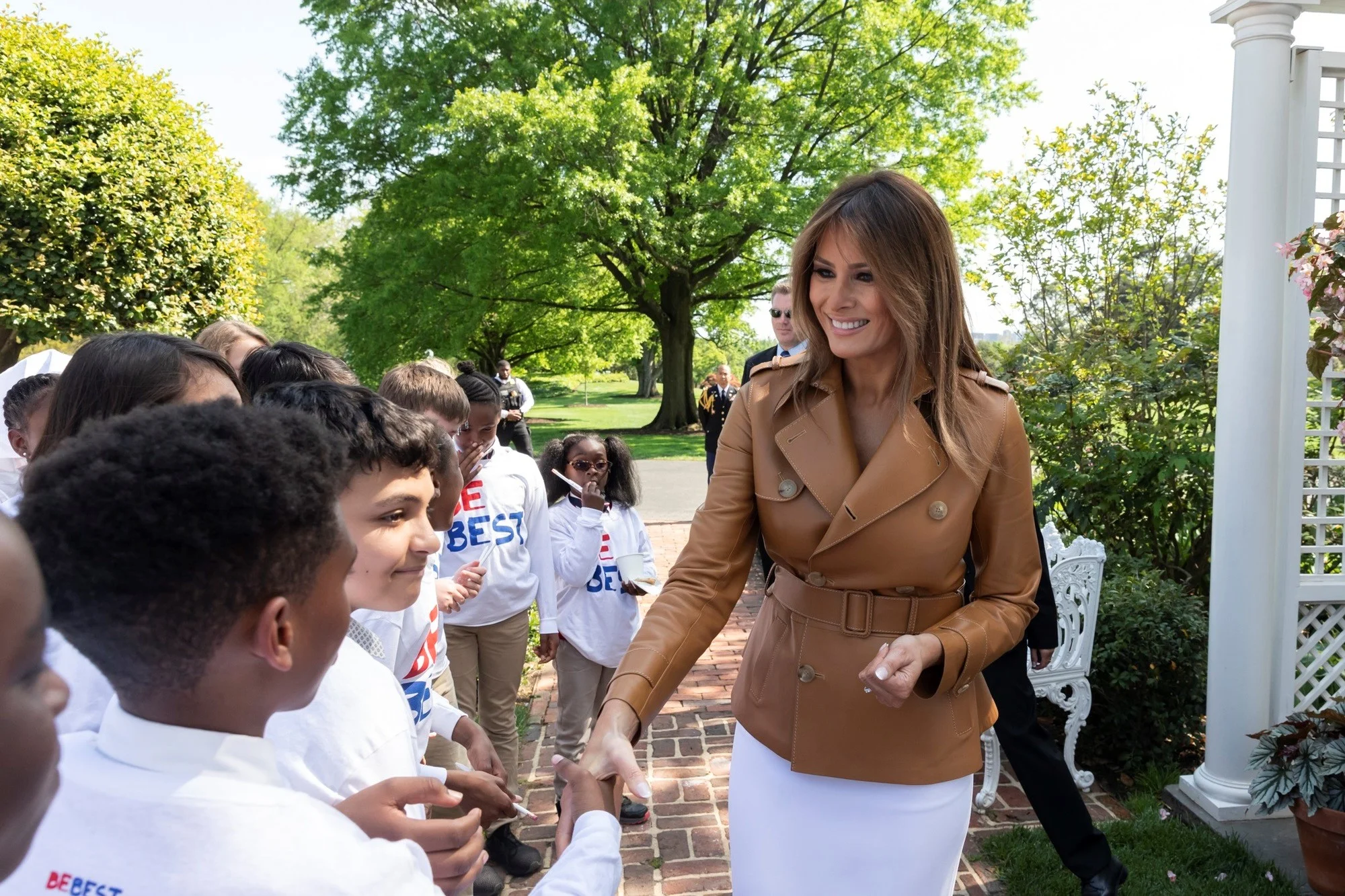I am a longtime admirer of Howard French’s reporting from, and commentary about, Africa. Nevertheless, I must take issue with his op-ed of July 17, in which he describes US policy toward Africa as “absentee diplomacy.” His statement that since the end of the Cold War, “the US has become more and more disengaged from Africa” does not conform to reality. Each U.S. President since that time has created new, signature Africa programs of their own, with transformative results for African people.
In the immediate aftermath of the Cold War, George H.W. Bush’s administration was heavily engaged in conflict resolution in Africa. Between 1989 and 1993, the US played the principal role in negotiations, in which I participated, leading to the end of major long-running civil wars in Ethiopia, Angola, and Mozambique.
President Bill Clinton signed into law the Africa Growth and Opportunity Act (AGOA), which today remains the major trade and investment vehicle linking Africa and the U.S.
President George W. Bush inaugurated several major programs in Africa. His PEPFAR program has saved tens of millions of African lives threatened by HIV, tuberculosis, and malaria. His establishment of the Millennium Challenge Corporation has resulted in major infrastructure improvements across Africa. President Bush also persuaded the World Bank to stop charging African countries interest when borrowing from their IDA soft loan window.
President Obama started two very innovative programs in Africa: “Power Africa,” designed to attract private investment to the continent’s woefully deficient electricity infrastructure; and his “Feed the Future” program, helping to modernize African agriculture in order to lower the continent’s very large food import bill, and end hunger among Africans.
President Obama also hosted a 2016 summit of African heads of state in Washington, where they were introduced to the leading CEOs of American industry. Significant networking took place at that meeting. Obama’s ground-breaking frank talk about ending corruption and bad governance was also highly significant.
Despite the leak of President Trump’s insulting private remark about African countries, and despite his tendency to reverse President Obama’s policies in other areas, Trump's policy toward Africa has also been positive. President Trump has continued his predecessors' programs on the continent – the Obama programs remain in place and are funded.
President Trump should also be credited with a significant diplomatic achievement in the Democratic Republic of the Congo. Unable to change the constitution so that he could run for a third term, President Joseph Kabila conveniently failed to hold the presidential elections scheduled for November 2016. President Trump sent UN Ambassador Nikki Haley to the Congo, where she was able to persuade all parties to hold an election in December of 2018. This election resulted in the first democratic transfer of power in the Congo since its independence in 1960.
In the economic arena, National Security Advisor John Bolton announced in December 2018 the establishment of President Trump’s “Prosper Africa” program, designed to attract and assist American companies looking to invest in Africa. The Trump administration correctly sees a growing private sector as Africa’s best path to economic growth and poverty reduction.
Among his personnel selections, President Trump’s appointment of Ambassador Tibor Nagy as Assistant Secretary of State for Africa could not have been better. Nagy is a 35-year veteran of the U.S. Foreign Service, with ambassadorships in Ethiopia and Guinea. His first year in office has been marked by a frank and fruitful dialogue with African leaders.
All of the above is a far cry from the accusation of US disengagement from Africa.
